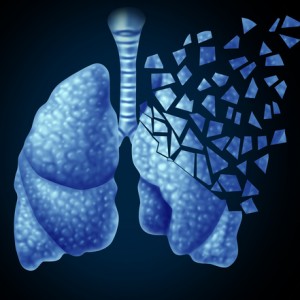 Boehringer Ingelheim today announced that nintedanib has been approved by the European Commission (EC) for the treatment of idiopathic pulmonary fibrosis (IPF), joining the recent approval by the FDA in the U.S. back in October of 2014. Nintedanib will be commercialized under the name OFEV® to address this debilitating and fatal disease, which features a median survival rate of just 2 to 3 years after diagnosis. The approval is supported by the results from the Phase III INPULSIS® trials that enrolled 1,066 patients in 24 different countries.
Boehringer Ingelheim today announced that nintedanib has been approved by the European Commission (EC) for the treatment of idiopathic pulmonary fibrosis (IPF), joining the recent approval by the FDA in the U.S. back in October of 2014. Nintedanib will be commercialized under the name OFEV® to address this debilitating and fatal disease, which features a median survival rate of just 2 to 3 years after diagnosis. The approval is supported by the results from the Phase III INPULSIS® trials that enrolled 1,066 patients in 24 different countries.
Klaus Dugi from Boehringer Ingelheim said in a press release: “Approval of this treatment for patients in the EU is a significant step towards meeting the substantial unmet need in IPF. Patients suffering from this chronic, debilitating disease can now be offered a new treatment option that has been shown to have a clinically meaningful effect on their disease. This approval is another milestone in Boehringer Ingelheim’s ongoing efforts with regard to innovation in rare diseases in general and our continuing research for the benefit of patients affected by such a dreadful disease as IPF in particular.”
The INPULSIS® outcomes revealed that nintedanib slows the disease’s progression and that it reduces the annual rate of decline in lung function by 50 percent in a large variety of IPF patients, such as those with early disease, limited radiographic fibrosis or those with emphysema. Nintedanib is a single capsule to be taken two times per day. This is the first targeted treatment for IPF to consistently meet the primary endpoint in two Phase III trials, which were designed to be identical. Nintedanib reduced the risk for “adjudicated acute exacerbations‡ by 68%,” according to the press release.
[adrotate group=”7″]
“Until recently, treatment options for patients with IPF were limited. The approval of nintedanib* in the EU gives patients with a life threatening illness a choice of therapy with proven efficacy. Clinical data demonstrate that nintedanib* reduces the annual decline of lung function by approximately half,” said Luca Richeldi from Boehringer Ingelheim. “Data also showed that nintedanib* reduced the risk of acute exacerbations, which can lead to hospitalization and death.”
IPF affects 14-43 people in every 100,000, most commonly among those over the age of 50. The disease causes lung scaring and decreases the amount of oxygen that lungs can carry into the organs. This approval represents a new choice and a great hope for IPF patients in Europe.

